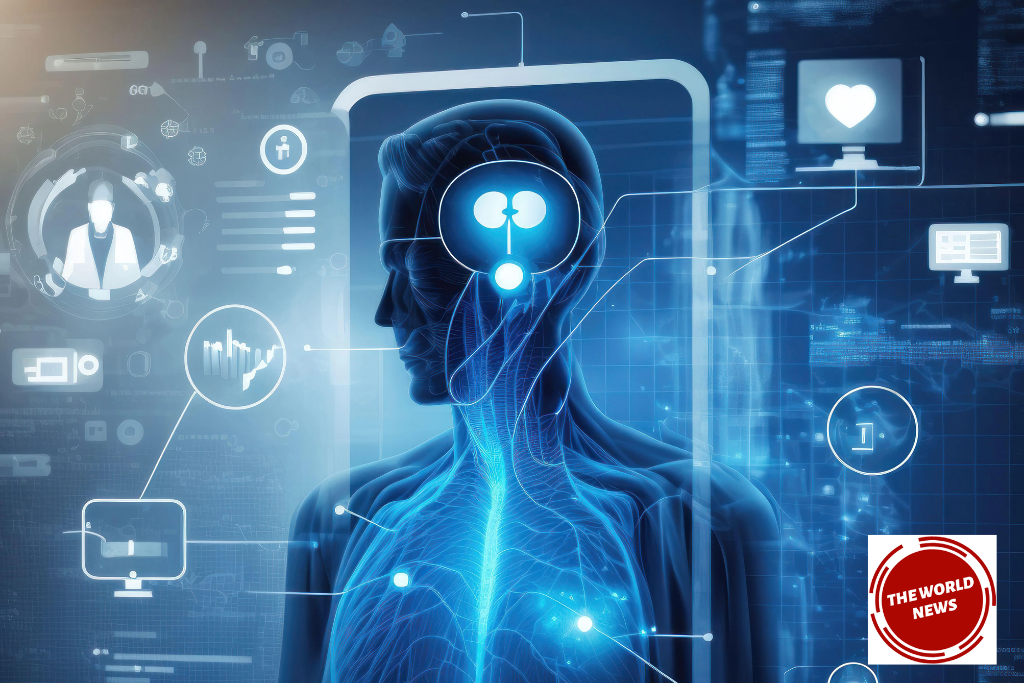Artificial intelligence (AI) has made significant advances in various fields, including healthcare. A recent study conducted in the Netherlands examined the capabilities of ChatGPT, a language model created by OpenAI, in diagnosing patients in an emergency room (ER) setting. The study’s results were encouraging, indicating that AI could support medical professionals, but it should not replace human expertise.
This blog post will explore the study’s findings, the implications for the medical industry, and the potential benefits and challenges of incorporating AI into emergency medicine without mentioning that it is an AI-powered assistant.
The Study’s Methodology
The study examined 30 cases treated in an emergency service in the Netherlands in 2022. Researchers fed anonymized patient histories, lab test results, and doctors’ observations into ChatGPT, requesting the model to provide five possible diagnoses for each case. These suggestions were then compared to the diagnoses made by ER doctors who had access to the same information, with the correct diagnosis as the reference point.
The Results: ChatGPT vs. Human Doctors
The study found that ChatGPT version 3.5 and version 4.0 performed impressively, with correct diagnoses in the top five suggestions in 97% of cases. Human doctors achieved a similar result, but the chatbot’s accuracy demonstrated its potential to assist in medical diagnosis effectively. This suggests that AI, in the form of ChatGPT, can mimic the diagnostic abilities of human doctors, potentially revolutionizing the medical field.
The Role of AI in Emergency Medicine
While the study’s results are promising, it’s important to emphasize that AI, like ChatGPT, is not intended to replace physicians. Instead, it can complement medical professionals by speeding up the diagnosis process and offering alternative insights. This assistance can be particularly valuable in high-pressure environments like emergency rooms, where timely decisions can be a matter of life and death.
Steef Kurstjens, one of the study’s co-authors, emphasizes that the key point is that the chatbot doesn’t replace the physician but can help provide a diagnosis and suggest ideas that a doctor may not have considered. AI’s ability to process vast amounts of medical data quickly can be a valuable asset to medical professionals.
Limitations of AI in Medicine
Despite its potential, AI, including ChatGPT, has limitations that must be acknowledged. The study revealed instances where the chatbot’s reasoning was medically implausible or inconsistent, potentially leading to misinformation or incorrect diagnoses. This highlights the need for caution when relying on AI in a medical context.
Moreover, the study had some shortcomings, including a small sample size of 30 cases, which may not represent the full spectrum of medical scenarios encountered in an ER. Complex and rare diseases were not thoroughly assessed, leaving questions about AI’s effectiveness in such cases unanswered.
Privacy Concerns and Ethical Considerations
Privacy is a significant concern when using AI in healthcare. AI models like ChatGPT must process sensitive and confidential patient data, raising questions about data security and compliance with privacy regulations like HIPAA in the United States. Addressing these concerns is crucial to ensure the responsible use of AI in medical settings.
The “Bloopers” of ChatGPT
The study also highlighted some medical “bloopers” made by ChatGPT, including instances where it incorrectly diagnosed patients. For example, it diagnosed anemia in a patient with a normal hemoglobin count. These errors underscore the importance of human oversight and validation when using AI in healthcare.
Future Prospects and Challenges
While the study’s findings are encouraging, the future of AI in emergency medicine is not without challenges. Researchers need to expand their studies to encompass a broader range of medical conditions and complexities. Additionally, AI models must continuously improve to reduce errors and inconsistencies in their reasoning.
AI’s potential lies not only in assisting experienced doctors but also in supporting less experienced healthcare professionals. It can help reduce waiting times in emergency departments, which is crucial for patient outcomes.
Conclusion
The recent study on ChatGPT’s diagnostic abilities in an emergency room setting opens up exciting possibilities for the future of healthcare.
While AI is not a replacement for human medical expertise, it can be a valuable tool in assisting medical professionals and potentially improving patient care.
However, challenges such as privacy concerns, the need for larger and more diverse datasets, and the mitigation of AI errors must be addressed as AI continues to integrate into healthcare. With responsible development and implementation, AI has the potential to transform emergency medicine and ultimately benefit patients by providing quicker and more accurate diagnoses.
As AI continues to advance and evolve, it is essential for the medical community to embrace these technological advancements cautiously and ethically, always with the patient’s best interests in mind. The combination of human expertise and AI support holds great promise for the future of emergency medicine and broader healthcare.
For all the latest news, keep visiting The World News.



